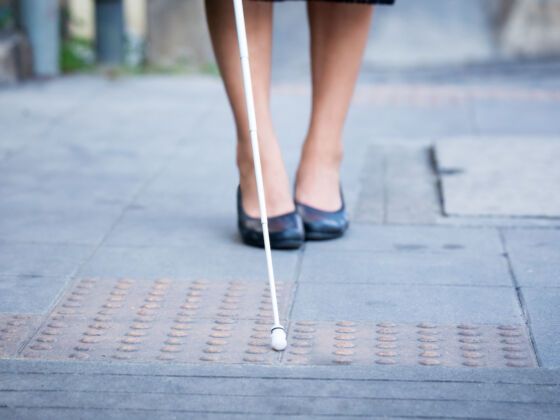MY DECISION TO become an archaeologist like my hero Indiana Jones led me to drag my parents on far-flung adventures, clambering over ruins and hunting for dinosaurs.
And although I discovered in later years that archeology and blindness do not a make for an easy career, my love of travel never abated.
I was born with achromatopsia – a rare genetic condition where my retina contains no cone cells. I’m completely colour blind, severely short-sighted (considered legally blind), and have no depth perception. Still, I’ve traveled solo, with tour groups, and with my husband throughout New Zealand and all over the world.
From my experiences, I’ve compiled following five tips for visually impaired travelers:
